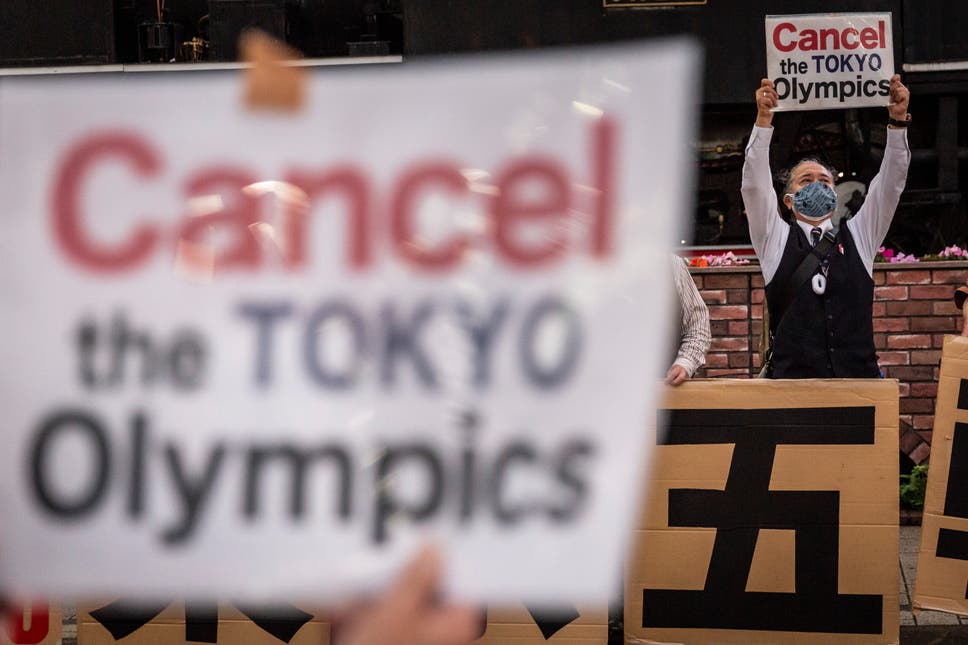Tokyo doctors call for Olympics to be cancelled over COVID surge

Image source: Yahoo.com
The IOC and Tokyo Olympic organizers start three days of virtual meetings Wednesday and will run into some of the strongest medical-community opposition so far with the games set to open in just over eight weeks.
In an open letter to Prime Minister Yoshihide Suga, dated May 14 and posted online on Monday, the Tokyo Medical Practitioners Association said hospitals in the host city “have their hands full and have almost no spare capacity”.
“We strongly request that the authorities convince the IOC [International Olympic Committee] that holding the Olympics is difficult and obtain its decision to cancel the Games,” the Tokyo Medical Practitioners Association said, according to Reuters, in a May 14 letter to Prime Minister Yoshihide Suga posted online Monday.
A jump in infections has stoked alarm amid a shortage of medical staff and hospital beds in some areas of the Japanese capital, promoting the government to extend a third state of emergency in Tokyo and several other prefectures until May 31.
Doctors would soon face the added difficulty of dealing with heat exhaustion patients during the summer months and if the Olympics contributed to a rise in deaths “Japan will bear the maximum responsibility”, it added.
Other health experts and medical groups have voiced their concerns about the Olympics, while an online petition calling for the Games to be cancelled was signed by hundreds of thousands of people.
Overall, Japan has avoided an explosive spread of the virus experienced by other nations, but the government has come under sharp criticism for its sluggish vaccination roll-out.
Last month, the British Medical Journal suggested the games be “reconsidered” and last week an online petition with more than 350,000 signatures calling for the Tokyo Olympics to be canceled was submitted to local officials and the IOC.
Organizers and the IOC say they will hold the games safely, isolating 15,400 Olympic and Paralympic athletes in a “bubble” and repeatedly testing them and the tens of thousands of others — judges, staff, sponsors, media and broadcasters — who will enter a country that has had its borders sealed for a year.
